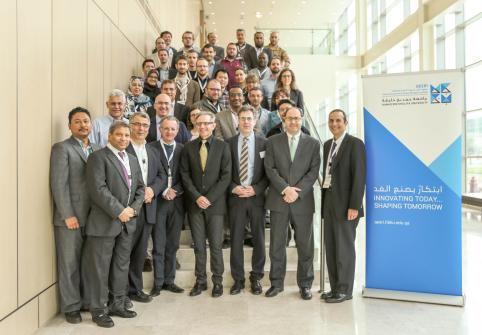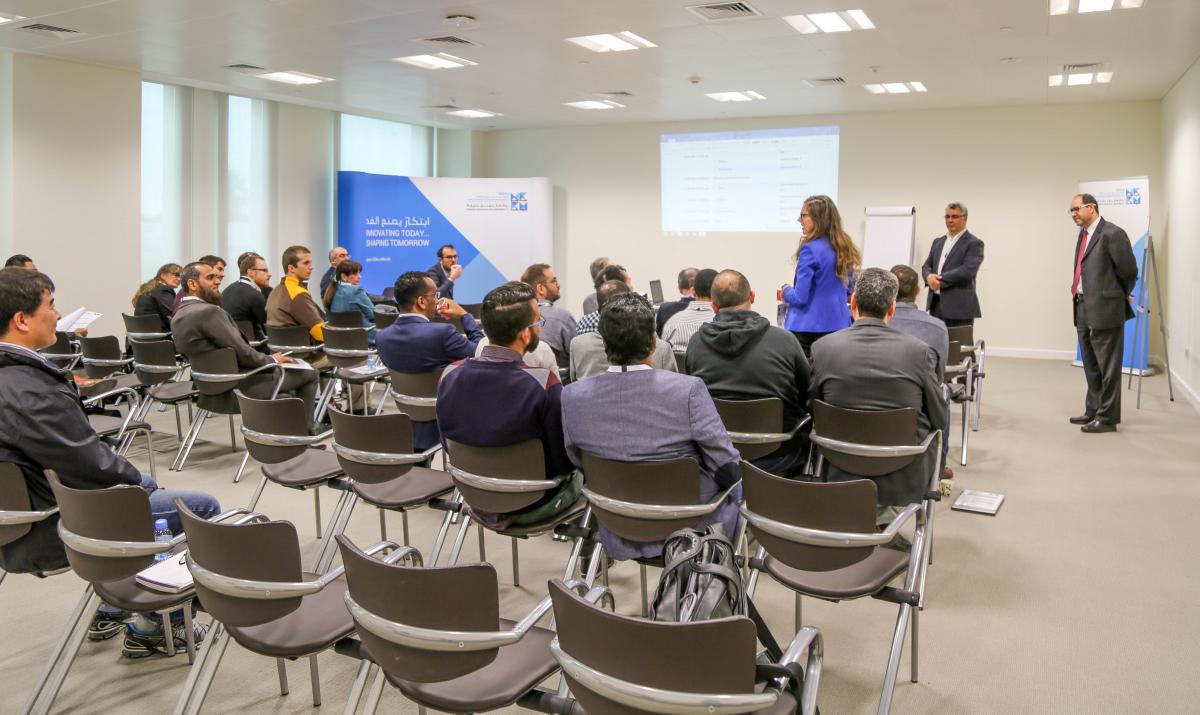News
HBKU’s QEERI Partners with École Polytechnique Fédérale De Laussanne to Develop More Efficient Solar Technology in Hot Climates
20 Mar 2017
Hamad Bin Khalifa University’s Qatar Environment and Energy Research Institute (QEERI) and École Polytechnique Fédérale De Laussanne (EPFL) in Switzerland have partnered together to develop a more efficient PV Technology and address the technical issues related to its large scale integration in the grid. The partnership aims to develop innovative materials and concepts that would facilitate the realization of low-cost energy generation in the near future, supporting the global transition to a low-carbon society, one of the major issues of the 21st century.
Scientists representing both EPFL and QEERI met earlier this year at the HBKU Research Complex to review progress made and discuss future steps. Fifteen prominent scientists from EPFL travelled to Doha to attend the workshop. Among them, renowned researcher and academic Dr. Christophe Ballif, Director of Photovoltaic (PV) Laboratory and winner of the Becquerel Prize, and Dr. Mohammad Nazeeruddin, one of the most cited scientists leading the field of perovskite solar cells.
Seeking to find more efficient methods of extracting solar power, the partnering research teams are working together to create technologies and utilize methods that are optimized for locations that experience hot climates and sunny weather, such as is the case with Qatar. In their recent gathering, scientists have demonstrated significant progress in this partnership, successfully designing both silicon and perovskite solar cells exceeding 20% efficiency.

The collaboration sees significant transfer of knowledge by leading experts and the joint intellectual property being developed is of importance to the global scientific community working in this field.
Dr. Nouar Tabet, Principal Investigator at QEERI, commented: “Our challenge is to develop cost-saving technology that can efficiently convert solar power, and inject it in the grid. Through this new development, we are looking towards an actual path of utilizing a clean and free energy source, the sun, as a tool to meet our energy needs. We continue to develop and experiment with novel approaches to develop a solar technology of better performance in hot climates.
“Our partnership with École Polytechnique Fédérale De Laussanne is one that allows us to reach that goal much faster. It is always an asset to partner with such accomplished scientists to achieve a shared goal.”
Throughout its years of operation, HBKU’s QEERI has played a significant role in addressing the national energy and water security grand challenges through substantial research and development.
